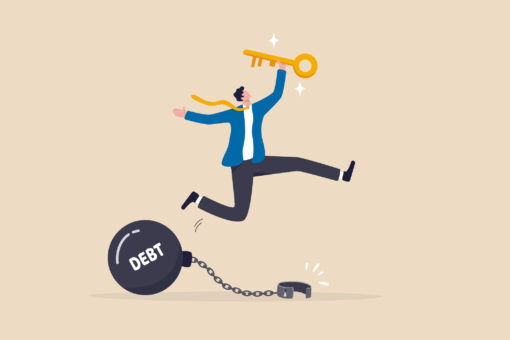
Some obligations in bankruptcy are dischargeable while others are not, some of which are secured by collateral like a house or automobile. Recognize which loans go into which categories to safeguard your possessions and yourself.
Because they are concerned about the nature or sorts of debts they have and what would happen to them if they file, many of my bankruptcy clients hesitate to file. I evaluate their bankruptcy case as their bankruptcy attorney and describe the different debt kinds, the results of any collateralization, the priority of specific debt types, and whether the debts are dischargeable.
Secured debts may be forgiven, but proceed with extreme caution
You might have been doing everything you could to stay current on your house or car payments before considering bankruptcy. You could have decided that preserving your house is your top priority out of concern for your family. Alternatively, you can have a similar sentiment about your car out of necessity for your job, family, or self.
You can still get a discharge under Chapter 7 while maintaining your house and automobiles. You are no longer required by law to pay back your obligations. But since they are secured debts, you have to keep paying them if you want to keep your ownership. You will receive your title free and clear once all payments have been made, whether they are for the mortgage or the car. Credit card debt and other unsecured obligations may not require repayment, but you should exercise extreme caution with secured obligations like mortgages and auto loans. You still have to pay to play, in a way.
In order to pay your mortgage or vehicle loan under Chapter 13, you could choose to ignore some of your creditors. The amount of your monthly payments to the bankruptcy trustee varies according to your commitments and the different kinds of debt you have. Depending on your level of discretionary income and the nature and order of your obligations, the payment amounts may be reduced. If these obligations are your top concern, bankruptcy often enables you to concentrate your limited financial resources on them.
Debts that you want to pay even after being discharged due to personal preference
Many customers wish to settle their debts and are loyal to certain of their creditors. A family doctor for a medical bill, for instance, or a credit union they’ve been dealing with for a year. This individual decision is made out of devotion and continuous service, not because it is legally obligated.
Due to their potential refusal to provide service, certain creditors may actually demand payment even after the discharge. There are safe methods to repay a debt and highly risky ways to do so, whether or not you file for bankruptcy. There are time limits on when you may or cannot repay, so carefully discuss your specific situation with our bankruptcy attorney.
Third-party and non-dischargeable debts
Legal differences and/or priority are established between different creditors, such as the IRS, state taxing authorities, support enforcement organizations, or student loan lenders, by the law. Some of these obligations are insurmountable during bankruptcy.
However, bankruptcy will typically assist you deal with even the most aggressive creditors and even obligations that cannot be dismissed. Sometimes it entails making fair payment plans once a Chapter 7 lawsuit is over. Other times, it entails paying these “priority creditors” in a Chapter 13 case before, or in instead of, other creditors, while doing so while continuing to enjoy bankruptcy court protection. In any case, bankruptcy usually gives you a practical means of dealing with these priority creditors and/or non-dischargeable obligations.

